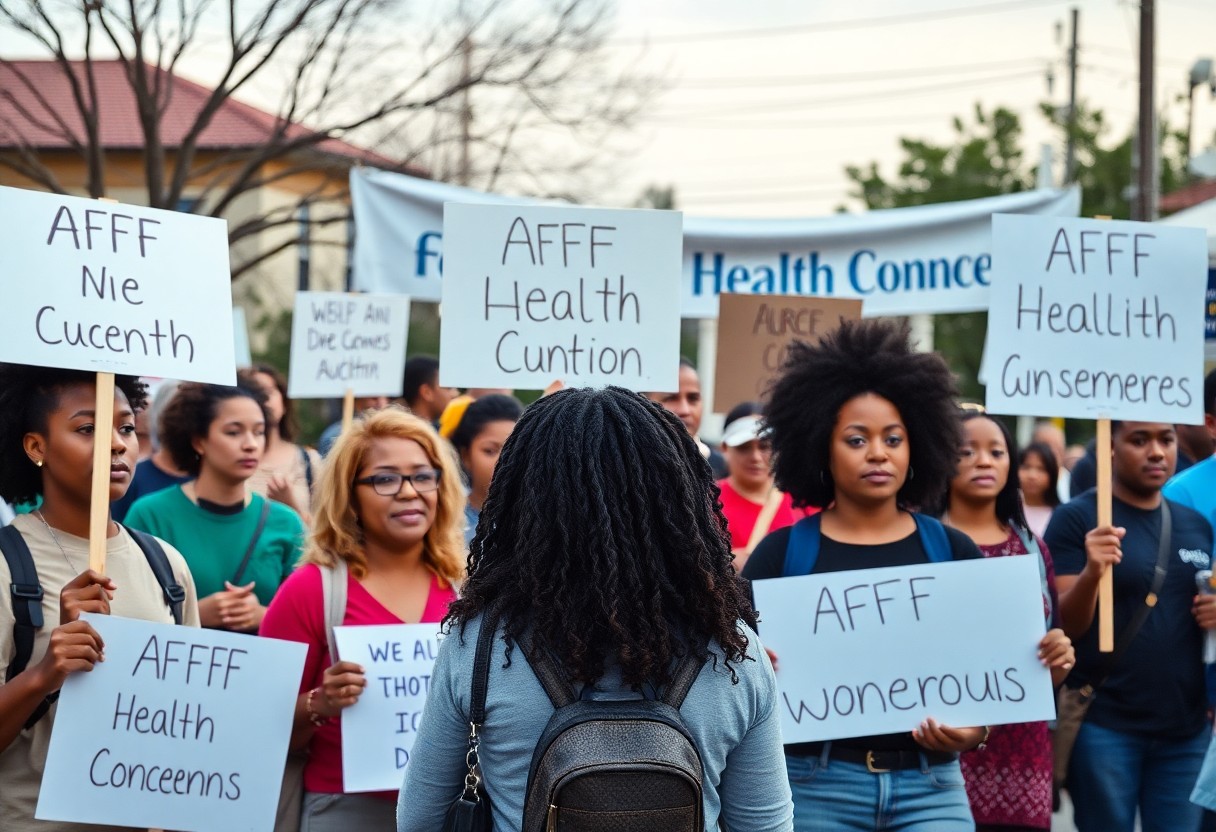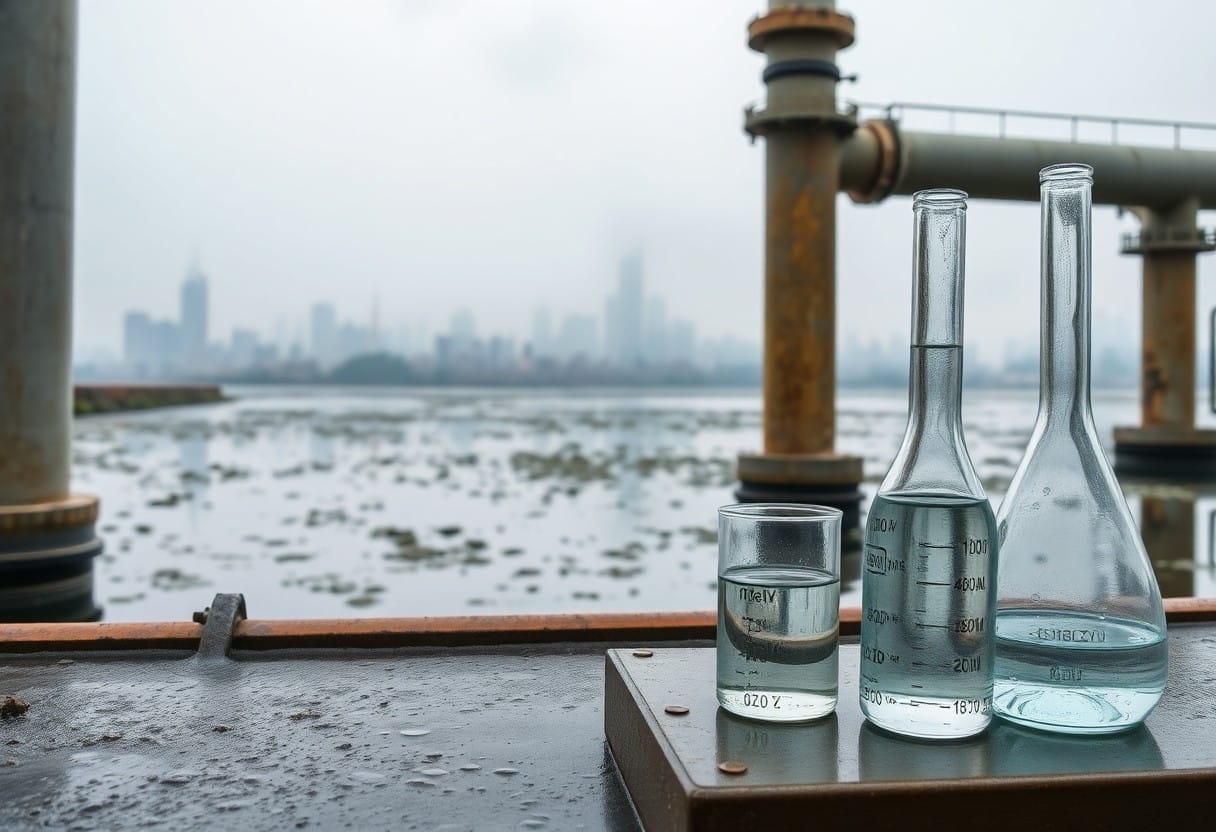Over time, exposure to aqueous film-forming foam (AFFF) can raise significant health concerns for you and your family. It’s crucial to take proactive measures to ensure your loved ones are protected from potential dangers associated with AFFF. In this post, we will explore seven effective steps you can take to reduce risks and promote a healthier home environment. Equip yourself with valuable insights so you can make informed decisions about safeguarding your family’s well-being.
Key Takeaways:
- Educate yourself and your family about AFFF (Aqueous Film-Forming Foam) and its potential health risks to make informed decisions regarding safety.
- Testing water sources for PFAS (per- and polyfluoroalkyl substances) can help identify contamination levels and safeguard your family against harmful exposure.
- Advocate for local regulations and initiatives that limit the use of AFFF and support environmental clean-up efforts to protect your community.
Understanding AFFF and Its Risks
While Aqueous Film-Forming Foam (AFFF) is widely used in firefighting and industrial applications, it poses significant health risks due to its chemical composition. Understanding AFFF, its applications, and the potential dangers it carries is vital for you and your family to address any related health concerns effectively.
What is AFFF?
With its effective ability to suppress flammable liquid fires, AFFF contains synthetic fluorinated chemicals that create a film, preventing oxygen from reaching the flames. While it provides efficient fire protection, these same chemicals may lead to particular health risks, making familiarity with AFFF important for safeguarding your family.
Health Concerns Associated with AFFF Exposure
Below are the various health concerns linked to AFFF exposure, which can significantly affect you and your loved ones. Long-term exposure may lead to issues such as liver damage, immune system disruption, and developmental problems in children, primarily due to the presence of PFOA and PFOS. Additionally, these persistent chemicals can accumulate in the environment and even in your body, heightening the urgency of addressing potential exposure.
Further, research has uncovered a troubling connection between AFFF exposure and a range of serious health conditions. Studies indicate that individuals exposed to AFFF may experience increased risks of kidney and testicular cancers. The prevalence of PFAS substances in AFFF can disrupt hormonal balance, leading to reproductive issues and affecting pregnancy outcomes. Being proactive in understanding these risks can equip you with the necessary knowledge to mitigate health concerns associated with AFFF exposure in your environment.
Identifying AFFF-Contaminated Areas
Now that you are aware of the importance of identifying AFFF contamination, it’s important to know where it might be present in your surroundings. Areas near airports, military installations, and firefighting training facilities are often at a higher risk for AFFF contamination. Being proactive in identifying these locations can help you safeguard your family’s health.
Common Sources of Contamination
For many households, common sources of contamination include sites where aqueous film-forming foam (AFFF) has been used. This can include local fire departments that conduct training exercises, industrial sites using foam for fire suppression, or military bases. Awareness of these sources allows you to understand potential risks in your environment.
Assessing Risk Levels in Your Environment
Assessing your environment for AFFF contamination is vital to ensure your family’s safety. Look into the nearby locations where AFFF has been historically utilized and consider the proximity of these sites to your home. You might also want to check local environmental reports that detail contamination levels in your area.
Risk factors associated with AFFF exposure vary by location and history of use. You should pay attention to areas with high traffic of firefighting activities, as exposure could lead to serious health implications for you and your loved ones. Proactive measures, such as testing soil and water near suspected contaminated zones, can help identify potential hazards. By being informed and aware, you empower yourself to take the necessary steps to protect your family’s well-being.
Proactive Steps for Families
Unlike passive approaches to AFFF health concerns, taking proactive steps can significantly reduce risks. Implementing measures as a family not only protects your health but fosters a supportive environment where everyone feels informed and empowered to address potential hazards.
Educating Family Members
After identifying the potential health risks associated with AFFF, it’s crucial to educate your family members. Share information about what AFFF is, how it can affect health, and the importance of proactive measures. Encourage open discussions to ensure everyone understands the risks and feels comfortable asking questions.
Conducting Home Assessments
Members of your household should prioritize assessing your environment for potential AFFF contamination. Look for any sources that might pose risks, such as contaminated water supplies or items that may have come into contact with foam. Regular assessments will help you stay diligent in protecting your family’s health.
Family assessments can include checking local water sources, examining utility bills for changes indicative of contamination, and investigating soil reports if necessary. Consider creating a checklist to ensure thorough evaluations of all potential areas of concern, allowing you to address issues before they escalate.
Using Water Filtration Systems
Below are various water filtration systems available that can significantly reduce harmful contaminants, including AFFF. Investing in a quality filtration system tailored to your specific needs is a proactive step toward ensuring access to clean and safe drinking water for your family.
Conducting research on water filtration technologies is crucial. Look for systems that specifically target per- and polyfluoroalkyl substances (PFAS) and ensure they are rated for the contaminants found in your area. Regularly replacing filters as recommended will ensure your system operates effectively to protect your family’s health.
Safe Disposal of Contaminated Items
By addressing potentially contaminated items with diligence, you reduce the risk of exposure. It’s crucial to dispose of any products that may contain AFFF safely and responsibly. Learn the proper disposal methods in your area to prevent environmental contamination.
Considering local disposal regulations is vital, as certain items may require specialized handling. Seek out hazardous waste disposal facilities or scheduled collection events in your community. Ensuring proper disposal safeguards your family and the environment simultaneously.
Seeking Medical Advice
Any concerns regarding potential AFFF exposure should lead you to seek medical advice. A professional evaluation can provide peace of mind and help address potential health issues early. Always be transparent with your healthcare professional about any exposures or related symptoms.
Indeed, communicating your concerns with a qualified medical provider allows for a tailored health plan based on your family’s specific exposure risks. Regular check-ups and screenings can also help catch any potential health issues early on, ensuring your family’s well-being remains a top priority.
Community Resources and Support
Many families dealing with AFFF health concerns can access a range of available resources that provide both information and assistance. Engaging with local services and community programs can help you navigate the complexities surrounding potential health risks and connect with others experiencing similar challenges.
Local Health Departments
An important first step is reaching out to your local health department, which can provide valuable information on AFFF-related health risks, available screenings, and community health initiatives. They often have resources and knowledge tailored to your region’s specific concerns, ensuring that you and your family receive informed guidance tailored to your circumstances.
Support Groups for AFFF Exposed Families
Groups specifically aimed at families exposed to AFFF can offer a supportive environment where you can share experiences and concerns. These gatherings not only provide emotional support but also enable you to receive valuable information from others who understand your journey. Facilitated by health professionals or advocates, they can direct you to appropriate resources and help you navigate medical needs.
At these support groups, you can discuss medical experiences and health concerns with peers who are in similar situations, fostering a sense of community and shared understanding. Many groups additionally serve as a platform for advocacy, pushing for awareness and health policies that protect families from AFFF exposure. By participating, you will gain not only emotional support but also insightful resources that can assist in addressing your family’s health needs effectively.
Policy and Legislative Action
For families concerned about AFFF health risks, engaging in policy and legislative action is crucial. By understanding and influencing local regulations, you can help advocate for safer practices that protect your community and ensure accountability. Fostering a proactive approach empowers you to voice your concerns while promoting safer alternatives to hazardous materials.
Understanding Local Regulations
Regulations regarding AFFF usage can vary widely across regions, impacting safety measures and potential health risks. It’s important for you to familiarize yourself with your local laws, as they govern how AFFF is managed, stored, and disposed of. These regulations provide insight into the safety protocols that are currently in place to mitigate health concerns.
Advocacy for Safer Practices
Below, you have the opportunity to engage in advocacy efforts aimed at promoting safer practices surrounding AFFF. By collaborating with community organizations, participating in public meetings, and voicing your concerns to local officials, you play a key role in shaping policies. Your advocacy can drive meaningful changes, such as pushing for the elimination of harmful firefighting foams and encouraging the adoption of safer, environmentally friendly alternatives.
Advocacy is crucial for transforming the discourse around AFFF and ensuring your community prioritizes health and safety. By sharing your personal experiences and connecting with others who care about this issue, you amplify your voice. Collaborative efforts can lead to stronger regulations and ongoing monitoring of AFFF usage, ultimately fostering a healthier environment for you and your family. Engaging in local initiatives or campaigns will showcase the demand for immediate action towards eliminating dangerous substances and adopting more responsible safety practices.
Final Words
So, by implementing these 7 proactive steps to mitigate AFFF health concerns for your family, you empower yourself to create a safer living environment. Educating yourself about potential risks, ensuring regular testing of your water supply, and advocating for safer alternatives can significantly reduce exposure. Additionally, fostering open communication with local authorities and staying informed about ongoing research will keep your family informed and proactive. Taking these actions demonstrates your commitment to health and well-being, ensuring that your loved ones are protected against any potential risks associated with AFFF exposure.












